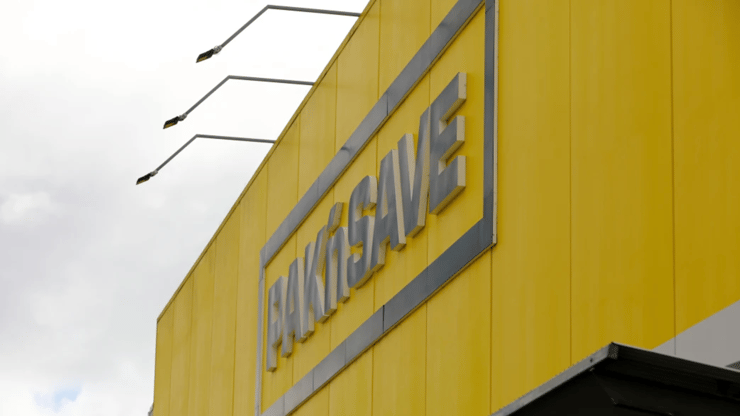Facial Recognition Tech Credited For Drop In Supermarket Assaults

- Serious assaults and cases of verbal abuse have reduced thanks to facial recognition technology, Foodstuffs North Island says
- It's tested the systems in 25 New World and Pak'nSave stores over the past six months
- Early results indicate 130 incidences of serious assaults and verbal abuse have been avoided
- The stores will continue using the technology while the company awaits final reports from an independent evaluator and the Privacy Commissioner
- The Privacy Commissioner has previously raised concerns about the use of facial recognition technology in supermarkets
A facial recognition technology trial at 25 supermarkets has reduced crime and prevented more than 100 serious physical and verbal assaults, Foodstuffs North Island says.
The New World and Pak'nSave stores have installed technology over the past six months which scans shoppers' faces and identifies previous offenders who are monitored or told to leave.
Early results from the trial's independent evaluator found it stopped about 130 serious assaults and cases of verbal abuse.
It compared the amount of attacks and harassment with the number with historical cases in those stores, and with stores not trailing the tech.
Retail crime had reduced eight percent quarter on quarter across all Foodstuffs North Island (FSNI) stores, with 4710 incidents reported between April and June.
But general counsel Julian Benefield could not say what the crime reduction figures were for the 25 trial stores.
The company did not have that breakdown yet, but the final report would paint a clearer picture of how the difference the technology has made in those stores, he said.
Speaking to Morning Report, Benefield was asked how the firm could accurately measure incidents being avoided.
An independent evaluator provided the number and is "very confident" of the preliminary finding, he said.
"That figure has come from robust analysis," he said.
"What they've done is they've looked at the changes in harmful behaviour data over the trial period in the trial stores versus non-trial stores, and they've looked at the direct effect of facial recognition, for evidence of facial recognition actually detecting offenders and them being turned away, as well as the deterrent effect, so offenders choosing not to go into stores at all because they believe that facial recognition will detect them.
"The safety of our team is a top priority so avoiding around 130 incidents of our people being in harm's way or attacked is huge."
While the early results showed the technology reduced harm and improved safety, the company would await the final results from independent evaluator before deciding on its future use, said chief executive Chris Quin.
But the 25 stores would continue using it in the interim.
"We'll wait for the final report, but while the numbers are still far too high, it seems like our well-publicised FR trial might have made a real difference," said Quin.
Privacy Commissioner Michael Webster told Morning Report that he remains
Early results indicate reduced crime
There were 1747 "alerts" of previous offenders entering the stores during the trial.
In just under half of cases, the person was asked to leave.
Store teams simply observed the identified match in about a quarter of cases, and for another quarter they took no action at all.
"Stores trialing FR became around 40 percent better at recognising trespassed people compared to our control stores," said Quin.
"Information is crucial and knowing an offender is in store means the team are informed and can decide on the safest response, which half the time is simply observing."
The technology also acted as a deterrent, he said.
"If it prevents repeat offenders from returning to stores where they're barred and keeps our people and customers safe, it's a worthwhile investment."
Privacy Commissioner to review trial
The company was awaiting the final report from independent research company, Scarlatti, and a report from the Privacy Commissioner Michael Webster before deciding on its future use of the technology.
Scarlatti's report was due in October, and the Commissioner's would be completed later this year, said Benefield.
Webster raised concerns when the trial launched, fearing the technology was not proven to reduce harmful behaviour.
He also worried Māori, Pasifika, Indian and Asian shoppers could be falsely accused, because the technology was not trained on the New Zealand population.
He told Morning Report there were still many concerns.
"There are some risks around the use of FRT and our bottom line is that we want to ensure that any new technology is used in a way that is compliant with the Privacy Act and protecting, respecting the privacy interests of New Zealanders."
Webster said his team is still looking at the results from the trial and independent evaluations of it.
In April a Māori woman shopping at a New World in Rotorua was mistakenly identified as a thief and kicked out of the shop.
That was the one case of mistaken identity during the trial, FSNI said, and there were four others where "the identity of a customer was established after we spoke to them".
"Our teams have taken privacy considerations extremely seriously and understand their responsibilities," said Benefield.
Nine out of 10 customers surveyed at trial stores said they did not mind the technology being used, he said.
The company had worked closely with the Officer of the Privacy Commissioner throughout the trial, providing extensive information and having its staff inspect the stores and their compliance with privacy protocols, said Benefield.
"The goal of the trial has always been to establish if FR can help keep our people and customers safe without compromising their privacy.
"These early results show FR has made a significant difference in reducing harm and improving safety."





-1.jpg)
